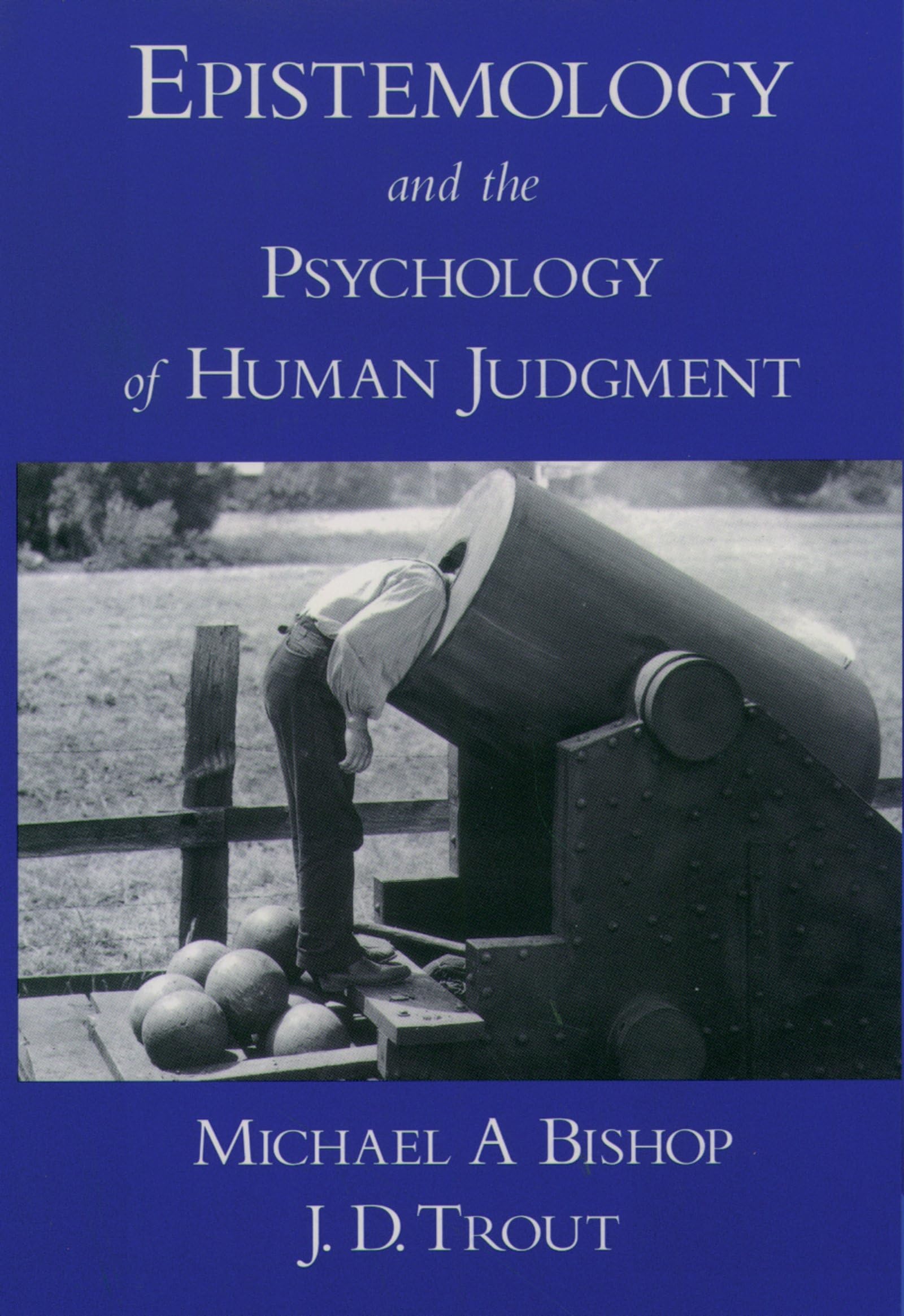Found in 2 comments on Hacker News
yboris · 2019-07-02
· Original
thread
In Epistemology and Psychology of Human Judgment [1] the authors recommend a similar approach:
1) Make a point estimate 2) Imagine that you're wrong (what direction are you wrong?) 3) Make a second point estimate 4) Average the two
Excellent advice from an excellent book!
[1] https://www.amazon.com/Epistemology-Psychology-Judgment-Mich...


The authors of the book provide several heuristics that yield better outcomes than typical strategies people use.
With respect to probabilities, since humans, on average, suck at it, they recommend a "frequentist" approach. A great illustration is one about a 99% accurate medical test that claims a patient is positive. The probability the patient has the disease is not 99% (over 60% of Harvard doctors get this question wrong). The authors show how reframing the question with a sample population (10,000 people for example) and the relative prevalence of the disease (and noticing the false negatives) the problem becomes almost trivial to calculate.
[0] https://www.amazon.com/Epistemology-Psychology-Judgment-Mich...